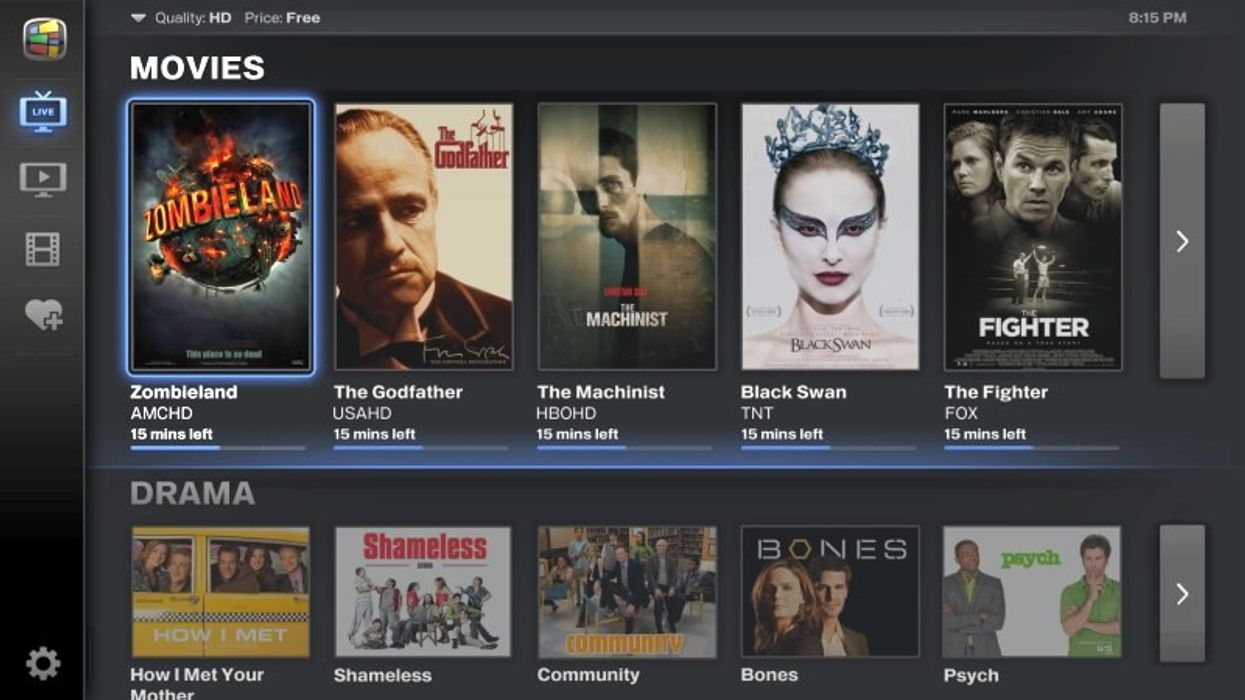What Will the TV of the Future Look Like? Updates for Google TV and Rumors about Apple TV

When I originally wrote, "Google TV is what independent filmmakers have been waiting for," in retrospect I forgot the "is" at the beginning of the sentence and the question mark at the end. So far the answer to that question has been, admittedly and unfortunately, a resounding "no" -- so much so that, despite being sent a Google TV by Google (in part because of writing that article), I still haven't set it up. But when it comes to independent film distribution, the TV is the final frontier, and whether or not Google TV version 1 made an impact, version 2 is currently rolling out this week and looks to improve things significantly. Oh, and rumors are flying that Apple is apparently getting into the TV game for real (the current Apple TV is nothing more than a hobby).
On the same topic, Google is also shelling out $100 million for Hollywood content for YouTube. While you can make a few dollars as a YouTube partner, one can only assume that Google is hoping to attract much higher advertiser rates with high-end video offerings that are more appropriate for the living room. Here's a look at the updates to Google TV, which uses Android 3.1 and offers a better user experience compared to the previous rev:
So, that's Google's latest play. Will it do a lot for independent film distribution? Not unless (or until) Google seamlessly incorporates indie marketplaces like Prescreen, Distrify, FilmDIY, and Dynamo Player. Google says "new partners" are on the way:
Google has introduced a new portal called TV and Movies which focuses searches exclusively down to full TV episodes and full movies. It is working with select partners now, such as HBO, and plans to work with more. The portal is open to any video streaming services that wants to make their content database available. The advantage (and vision) here is that everything is presented in a single, consistent interface, and you won't have to launch a multiple apps to access content from multiple services.
The Android 3.1 update will be enough for me to finally get around to setting up the device, at least, and that's something. But there's another problem with TV in its present form: the configuration. I've said in the past (I think on Twitter, though it's nigh impossible to search your past tweets) that "the remote is the key to the future of TV." And by "the remote" I mean the universality (or lack thereof) of remotes, and the associated configuration issues that go with it. Two recent anecdotes:
- I returned home to North Carolina to surprise my mom on her birthday, and one of the first things my parents asked me to fix was the Logitech Harmony universal remote I got them, which had stopped working. I pointed it at the TV and hit the "Help" button. It fixed itself -- the simplicity of this particular remote is the reason I bought it for them -- but even with a self-fixing approach to configuring components, they were still having issues.
- I visited a friends house and thought to myself, "wow, this Playstation 3 HD looks terrible on this Sony flatscreen, I wonder if it's configured correctly?" I checked the output settings and it turns out the PS3 was set to output 480p, despite the fact that the TV was 1080p. They'd been watching content this way for over a year, and you can bet they're not the only ones -- most people with HDTVs aren't watching HD content.
What is the point of these two examples? Simplicity is often Apple's greatest virtue. And "it just works" is not something you can say about TVs. Readers of this blog are probably power users for the most part, but the general masses do not fall under the same category. So if Google TV turns out not to gain significant market penetration, can Apple go where Google cannot?
In Walter Isaacson's Steve Jobs biography, Jobs reportedly said of the TV, "I finally cracked it." Many assumed this to mean that Siri-like voice control was going to be a replacement for the remote control. But there's a problem with a voice-activated TV:
Yes, the TV would have to include programming to ignore its own audio. But still. It's funny.
The larger question is whether Apple would build a device that integrates with the existing Cable TV ecosystem, and I would have to guess the answer to that is a resounding no. Instead, what if the Apple TV had a Newsstand-like shelf of "channels" that were in fact enhanced video streams more akin to apps? iOS's Newsstand seems to be doing well, and as John Gruber points out:
Why not the same thing for TV channels? We’re seeing the beginnings of this, with iPhone and iPad apps like HBO Go, Watch ESPN, and the aforementioned Bloomberg TV+. Letting each TV network do their own app allows them the flexibility that writing software provides. News networks can combine their written and video news into an integrated layout. Networks with contractual obligations to cable operators, like HBO and ESPN, can write code that requires users to log in to verify their status as an eligible subscriber. Why not the same thing for TV sized displays? Imagine watching a baseball game on a TV where ESPN is a smart app, not a dumb channel.
Indeed, there's no reason those on-screen news tickers should be embedded into a compressed video stream.
In Isaacson's intro to his biography on Jobs, he wrote, "This is a book about the roller-coaster life and searingly intense personality of a creative entrepreneur whose passion for perfection and ferocious drive revolutionized six industries: personal computers, animated movies, music, phones, tablet computing, and digital publishing." One wonders if that list will include a seventh industry, posthumously: television.
[via Gizmodo]













